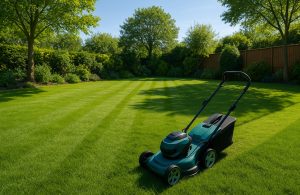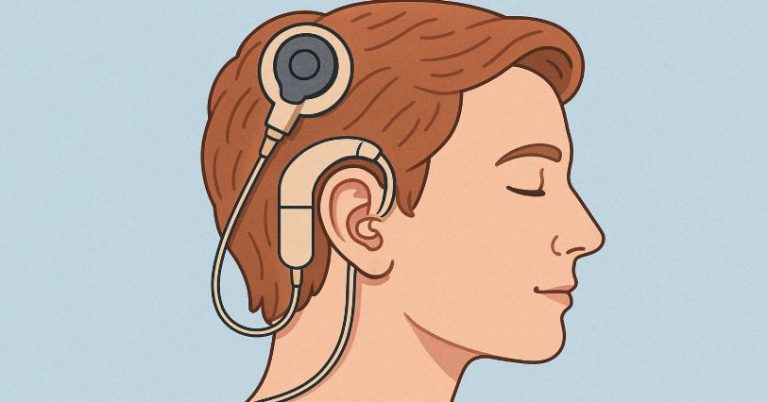What Is the Legal Framework for Lawn Mowing in the UK?
In the UK, the act of mowing the lawn isn’t strictly regulated by national legislation, but local councils have the authority to manage noise under the Environmental Protection Act 1990. This law empowers councils to take action against noise that unreasonably interferes with people’s enjoyment of their property, especially during sensitive hours.
This means that while you won’t find a specific law saying “you can’t mow your lawn at 6 a.m.,” using loud equipment at that time could result in a noise complaint and potentially a fine. Councils are especially attentive to noise levels between 11 p.m. and 7 a.m., when residents are likely to be resting.
London boroughs and other high-density urban areas often follow more refined noise guidelines under local “Gardening and Noise Control” regulations. Being informed about your local council’s stance can save you trouble and foster neighbourly harmony.
How Do UK Noise Regulations Affect Lawn Mowing Times?

Noise regulations in the UK centre around whether the level of sound produced by your lawnmower qualifies as a “statutory nuisance.” This isn’t measured by specific times but by how disruptive the noise is relative to the environment.
To provide context, if the background noise level in your area is 24 decibels or less, then the maximum allowed noise level is 34 decibels. If the background noise is higher, your equipment must not exceed 10 decibels above it.
Since electric lawnmowers typically produce around 70 decibels, using them during sensitive hours can be considered disruptive.
Petrol mowers, often even louder, are more likely to attract complaints if operated during early mornings or late evenings.
Although it’s not illegal to mow at night, if the noise exceeds acceptable levels, the council may issue a noise abatement notice. If ignored, this could lead to fines or even prosecution in extreme cases.
What Are the Acceptable Lawn Mowing Times in the UK?
While no law states the exact hours you can mow, general community standards have emerged, largely influenced by council guidelines and public expectations.
Mowing within the times shown in the table below will usually help you avoid complaints.
| Day | Recommended Mowing Time |
| Monday–Friday | 8:00 AM – 8:00 PM |
| Saturday | 9:00 AM – 6:00 PM |
| Sunday | 10:00 AM – 5:00 PM |
On weekdays, mowing after 8 a.m. aligns with most working schedules and ensures minimal disturbance. For best results and fewer disruptions, some gardening professionals suggest starting no earlier than 9 a.m. and finishing by 6 p.m.
During weekends, and especially on Sundays, being considerate is vital. Even though you can technically mow anytime after 7 a.m., avoiding noise before 10 a.m. is a respectful practice.
What Is the Best Time of Day to Mow for Lawn Health?

Timing isn’t just about noise it’s also crucial for lawn health. Mid-morning, particularly between 8 a.m. and 10 a.m., is often cited as the most beneficial time to mow.
By then, the morning dew has dried, reducing the risk of fungal diseases, and the grass isn’t yet stressed by midday heat.
Early evening is another viable option. The temperature cools, allowing for a cleaner cut and quicker recovery. However, mowing too close to dusk means the lawn may not dry before nightfall, increasing the chance of disease.
Mowing during the hottest parts of the day, especially in summer, can cause unnecessary stress to the grass and should be avoided.
How Do Seasons Influence Mowing Frequency and Timing?
Grass grows at different rates depending on the season, so your mowing schedule should adjust accordingly.
| Season | Growth Pattern | Recommended Mowing Approach |
| Spring | Moderate | Mow when needed; avoid overgrowth |
| Summer | Fast | Mow regularly, avoid peak heat |
| Autumn | Slower | Reduce frequency, prep for winter |
| Winter | Minimal | Mow only if dry and necessary |
In spring, grass starts to grow again but not as aggressively as in summer. During summer, the combination of warmth and light leads to rapid growth, requiring more frequent cutting.
Autumn sees growth slowing, and it becomes a good time to prepare the lawn for winter. In winter, lawns are often dormant. If you do mow, only do so when the ground is firm and dry.
What Factors Should Be Considered Before Mowing?
Before mowing, assess both your lawn and the surrounding environment. Weather conditions, soil moisture, and grass growth rate all affect when and how often you should mow.
Mowing wet or frosty grass can lead to soil compaction and damage to the turf. It’s best to wait until the lawn is dry to avoid tearing the grass blades and leaving them vulnerable to disease.
The type of grass and its intended use also matter. Fast-growing species in nitrogen-rich soils will need trimming more frequently than hardier, slow-growing types.
If your lawn is ornamental, keeping a consistent height is more important than with a utility lawn.
How Does Mower Type Impact Noise and Neighbour Relations?

Not all mowers are created equal when it comes to noise. Electric mowers, lacking a combustion engine, operate more quietly than petrol models. This makes them more suitable for residential areas and early or late mowing.
Petrol mowers, while powerful and effective on large lawns, produce significantly more noise. Poor maintenance can further increase noise output.
Blunt blades, worn parts, or a poorly running engine can make your mower not only less efficient but also more disruptive.
Regular maintenance, including blade sharpening and engine checks, helps reduce noise and ensures a cleaner, healthier cut.
What Are the Best Practices for Sunday Lawn Mowing?
While it’s not illegal to mow your lawn on a Sunday in the UK, it’s best approached with discretion and courtesy. Most neighbours won’t appreciate being woken by the sound of a mower on a quiet Sunday morning.
Waiting until after 10 a.m. shows consideration and is more likely to maintain a peaceful environment. If you live in a densely populated area, mowing between 10 a.m. and 5 or 6 p.m. is considered ideal.
Using quieter, well-maintained equipment is also advisable. Sundays are seen as a day of rest, so being sensitive to noise levels and local expectations is essential.
How Can You Maintain Good Neighbour Relations While Mowing?
Mowing your lawn should never become a source of conflict. A little communication can go a long way. If you know your schedule might inconvenience others, take a moment to check with your neighbours.
Consulting them about preferred mowing times or adjusting your routine slightly in response to feedback helps avoid friction. If someone raises a concern, respond respectfully. It’s better to adjust your mowing time than risk a formal complaint.
If noise continues to be an issue, consider switching to a quieter model or limiting mowing to mid-morning or early evening hours.
What Safety Measures Should You Follow While Mowing?

Safety should be a priority whether you’re mowing a small garden or a large lawn. Wearing appropriate protective gear and being mindful of your surroundings reduces the risk of injury.
Long trousers protect your legs from debris, while goggles shield your eyes from flying particles. Ear protection is recommended for petrol or noisy electric mowers.
Gloves provide grip and prevent blisters, and sturdy, closed-toe shoes offer essential foot protection.
It’s also important to check the lawn for hazards like stones, toys, or branches before starting.
Always refuel your mower with the engine off and avoid mowing in wet or stormy conditions. Keeping children and pets at a safe distance adds another layer of protection.
FAQs About Lawn Mowing Laws and Etiquette in the UK
Can I legally mow the lawn at 7 a.m. in the UK?
There’s no law preventing it, but doing so may breach noise regulations, especially in quiet residential areas. It’s best to wait until at least 8 a.m. on weekdays and 10 a.m. on Sundays.
Are local councils allowed to fine me for mowing early?
Yes, councils can investigate and take action if your mower is deemed a noise nuisance, particularly during designated quiet hours.
Is Sunday mowing against the law in the UK?
No, but councils and communities expect you to be considerate. Mow during late morning to early evening to avoid disturbance.
What’s the quietest type of mower for residential use?
Electric mowers are quieter than petrol-powered ones and are ideal for use in suburban or densely populated areas.
Does grass health improve if I mow at a specific time of day?
Yes, mowing mid-morning or early evening promotes better lawn health and recovery.
Can weather impact when I should mow my lawn?
Absolutely. Avoid mowing when the grass is wet or frosty, as it can damage both the lawn and your mower.
What should I do if a neighbour complains about my mowing time?
Talk to them calmly and adjust your mowing schedule if necessary. Respectful communication usually prevents escalation.






